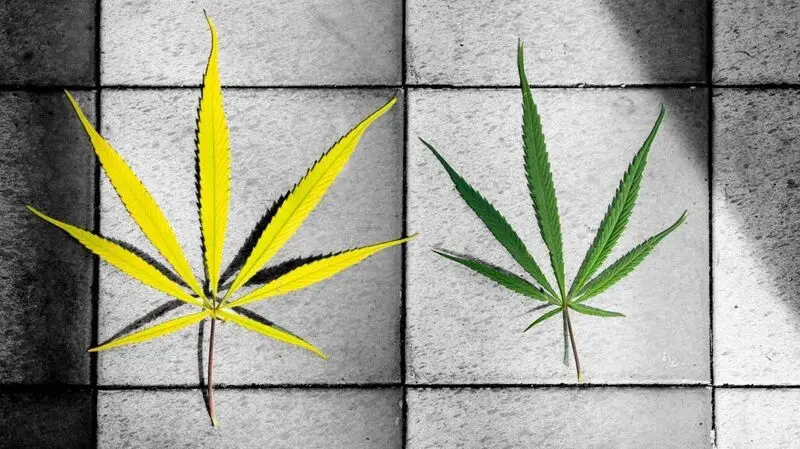
- A new study shows there were more cases of asthma among individuals in the United States who used cannabis in the past month.
- Negative effects of cannabis use include respiratory and cardiovascular problems, cognitive impairment, poor school or work performance, and mood disorders.
- The effects of secondhand smoke from cannabis may also raise asthma risk.
- The legalization of cannabis in many states may have contributed to the recent rise in asthma cases.
A new study showed asthma was more prevalent among individuals in the United States who reported cannabis use in the past month.
Asthma was also more common among people who used cannabis 20–30 days each month.
The findings were recently published in the journal Preventive Medicine.
Researchers analyzed data from the 2020 National Survey on Drug Use and Health a representative, which included 32,893 U.S. individuals aged 12 and up.
Specifically, they looked at the association between frequency of any cannabis, blunt use, or both in the past month among participants with asthma, while also taking into account demographics and current cigarette smoking.
Results indicate the more often cannabis is used, the higher the incidence of asthma. Further studies are needed to understand this association.
Dr. Len Horovitz, a pulmonologist at Northwell Lenox Hill Hospital in New York, not involved in the study, told Medical News Today:
“As the study showed, increased use of cannabis seems to correlate with the increased prevalence of asthma. It’s important to note the way cannabis was delivered was traditional (used in a blunt form) as opposed to edibles. Therefore, it is unclear if it’s the contaminants of smoke or the THC itself which is causing the increased prevalence of asthma in those users.”
Cannabis or marijuana is the third most used psychoactive substance worldwide, after alcohol and tobacco (nicotine), Dr. Sobia Farooq, an asthma specialist at Cleveland Clinic not involved in the study, told MNT.
The potency of cannabis has significantly increased worldwide over the past two decades, which may factor into the higher rates of adverse effects related to the substance.
“There are several potential negative effects of cannabis including respiratory, cardiovascular, cognitive impairment, poor school or work performance and psychiatric comorbidity such as mood disorders and psychosis,” Dr. Farooq said.
Smoking cannabis may contribute to respiratory symptoms and possibly respiratory disease. The available data suggest that smoking cannabis is associated with:
- cough
- sputum production
- wheezing
- dyspnea
Cannabis inhalation may also exacerbate symptoms in people with asthma, but the association between chronic cannabis use and asthma had been unclear.
The current study addressed asthma prevalence among people who use cannabis users and shows an increased prevalence among this demographic, Dr. Farooq noted.
Cannabis use is steadily increasing, which may play a role in the rise in asthma cases.
“We know that secondhand cigarette smoking is related to asthma,” Dr. Horovitz explained. “With cannabis, I would imagine there may be also a correlation with secondhand smoking and increased prevalence of asthma.”
Increased cannabis use often means more instances of secondhand smoke exposure, which can be harmful to individuals, especially children with developing respiratory systems, Dr. Farooq explained.
Exposure to secondhand cannabis smoke may worsen asthma symptoms or contribute to the development of respiratory issues in susceptible individuals.
The study’s findings also indicate that state-level cannabis policy could have downstream effects on children’s respiratory health. It raises the question if this emerging health problem may be due to the legalization of cannabis.
“It’s typical to point to that one factor because of socioeconomic reasons, particularly air pollution,” Dr. Horovit said. “But you can’t isolate it and say that’s the reason. It’s multifactorial.”
Legalization has led to increased availability and accessibility of cannabis products, which could result in more opportunities for youth exposure, either directly or indirectly, through secondhand smoke, Dr. Farooq noted.
Legalization may also contribute to the idea that cannabis is less harmful, which in turn, could lead to excessive use among adults and increased exposure to young people.
According to the
Some people may turn to edibles to avoid smoking cannabis, but this tactic could lead to dependence.
“Edibles are a way to but back on smoking,” Horovitz stated. “However, it doesn’t stop the habit — it’s a way of stopping the smoking part of the problem.”
Cutting back or stopping cannabis use is a personal decision that may require effort and support.
“Setting clear goals, gradual reduction, identifying the triggers, considering alternatives like starting a new hobby or exercise, creating a support system for yourself and seeking a professional help to consider cognitive behavioral therapy (CBT),” Dr. Farooq suggested.
“At times medications can also be used to help assist the process.”
Help is available
Seeking help for addiction may feel daunting or even scary, but several organizations can provide support.
If you believe that you or someone close to you is showing signs of addiction, you can contact the following organizations for immediate help and advice:
- Substance Abuse and Mental Health Services Administration (SAMHSA): 800-662-4357 (TTY: 800-487-4889)
- 988 Suicide & Crisis Lifeline: 988





